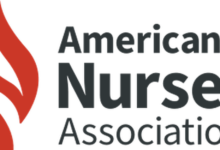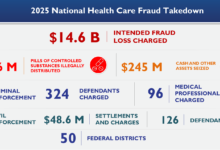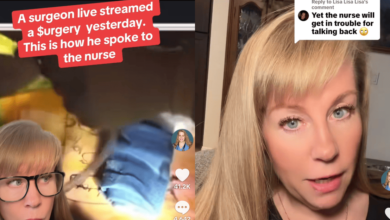Health visitors key to Labour’s child health action plan

Health visitors and district nurses would play a pivotal role in improving “plummeting” health outcomes for children if the Labour Party is elected, the opposition has said as it unveiled its latest manifesto pledge ahead of an expected 2024 general election.
The Labour Party’s Child Health Action Plan, published this week, promised to improve the health of children by – among other measures – training more health visitors and reforming the role, further legislating against the advertisement of junk food and tobacco and bringing more care from the hospital to the community.
“When sufficiently resourced, health visitors can take pressure off busy A&E departments and primary care”
Alison Morton
The plan consists of seven policy pledges for improving children’s health, as well as additional promises to reform NHS infrastructure.
With a focus on prevention, the plan pledges to tighten restrictions on junk food and tobacco products to limit their appeal to children, mandate health promotion in schools and cut waiting lists.
Labour leader Sir Keir Starmer launched the plan during a visit to Manchester University NHS Foundation Trust.
At the event, Sir Keir said the health outcomes of UK children had deteriorated and had fallen behind other comparative countries.
He claimed his party’s plan to move the NHS towards a “prevention-first” approach would help turn this around.
This plan referenced community nursing in particular as a way to achieve this goal.
It pledged to train “more” health visitors and “deliver on the NHS [Long Term] Workforce Plan”. The party did not specify if, by “more”, it meant increasing the targets in the workforce plan, or simply committing to meeting them.
More health visitors, the party said, would mean fewer parents would need to access help from general practice staff or take their children to A&E.
Labour further said it would reform the role of the health visitor to include administering routine immunisations to children.
Labour’s seven-point Child Health Action Plan
The main pledges in the plan are:
- Cut waiting lists for children
The party said it would achieve this by delivering two million additional planned care appointments per year in the evenings and weekends.
- End the crisis in child mental health
Labour pledged to recruit “thousands more staff” to reduce mental health waiting lists, introduce specialist mental health support in “every school” and set up mental health hubs for children and young people in “every community”.
- Transform NHS dentistry
They promised 700,000 extra urgent dental appointments per year, more dentists to areas of need and a “targeted national supervised toothbrushing programme” in the breakfast clubs.
- Crackdown on smoking and vaping
This will include implementing the current government’s “incremental ban” on smoking, ensuring hospitals integrate opt-out smoking cessation into routine care, further restrictions on smoking packaging, and banning vapes being branded and advertised to appeal to children.
- Ban junk food advertising to children
Labour intend to implement a 9pm watershed for junk food advertising, restrict online advertisements of unhealthy food, and make exercise compulsory at school.
- Introduce breakfast clubs for all primary school children
A funded breakfast club in all primary schools providing a “healthy breakfast” for children.
- Protect children from the growth of infectious diseases
The party pledged to “deliver on the NHS workforce plan”, including training more health visitors and reforming the role so they can administer routine immunisations to “vulnerable and at-risk” children.
Responding to the plans, Institute of Health Visiting (iHV) chief executive Alison Morton said this part of the nursing workforce had an “important role” to play in health prevention and, in turn, reducing waiting lists in primary and secondary care.
“We are delighted to see that the Labour Party are pushing ahead with their plans to grow the health visitor workforce in their Child Health Action Plan,” said Ms Morton.
“This will build capacity in the service to tackle a wide range of inequalities in child health, as well as supporting families to access healthcare – for example, to improve immunisation uptake and reduce pressures on A&E departments for minor illnesses.”

Alison Morton
She welcomed the plans, in particular because she felt it would restore health visiting to a preventative role, something Ms Morton said had “fallen by the wayside” in recent years.
Instead, Ms Morton said, health visitors had been “reduced to firefighting” due to a workforce shortage.
She continued: “If we’re serious about improving the health of our nation’s children, it is imperative that health visitors get back to their core health function, working with families to prevent, identify and treat problems before they reach crisis point.
“When sufficiently resourced, health visitors can take pressure off busy A&E departments and primary care, providing support for families in the heart of the community.”
The plan then outlined how district nurses would play a role in improving the health of children through a more “joined up” health and care service focused on care in the community.
Labour said it would trial having ‘community health centres’ in each area of the country which would serve as a base for GPs, physiotherapists, dentists, pharmacists and district nurses all in one location.
Nursing Times has sought further clarity from Labour on what this would mean for the structure of primary and community healthcare.
Pat Cullen, Royal College of Nursing (RCN) chief executive and general secretary, welcomed the announcement from Labour.
“Nursing staff lead public health services and will support a focus on prevention and detection for the youngest,” she said.
“They can support the development of this approach with expertise and evidence on the clear benefits to health outcomes, society and communities when you invest in children and parents to break the cycle of disadvantage.
“By focusing on maternal mental health, healthy birthweight and nutrition we can make vital progress and build upon it with later school readiness and early education programmes.”
Ms Cullen further said Labour’s plans would require investment in “services and the nurses and others who run them”.
She added: “Our members work in schools, visit homes as well as lead clinics on these issues and their input can support a new government’s approach.”
Labour also reiterated its pledges to improve the digital infrastructure of the NHS – in particular the digitisation of the Children’s Health Record (also known as the Red Book) and investment in artificial intelligence.
NHS leaders also welcomed the Labour Party’s plans.
Miriam Deakin, director of policy and strategy at NHS Providers, and NHS Confederation chief executive Matthew Taylor both said they agreed prevention and primary care would help improve the overall health of the UK’s children.
However, Ms Deakin said she hoped the Labour Party would commit to investing in the causes of poor health and development in children, such as housing and education.
Mr Taylor echoed these concerns, adding: “The NHS has a vital role to play in improving outcomes for children and young people but cannot do it alone.
“We will continue to make limited progress unless the government tackles the fundamental issues that determine a child’s health, wellbeing and educational attainment.
“NHS leaders want to see institutions across our society, particularly education, resourced and empowered to support everyone’s health. This starts by enabling children and young people to grow into healthy, happy adults that can secure the future of the country.”






